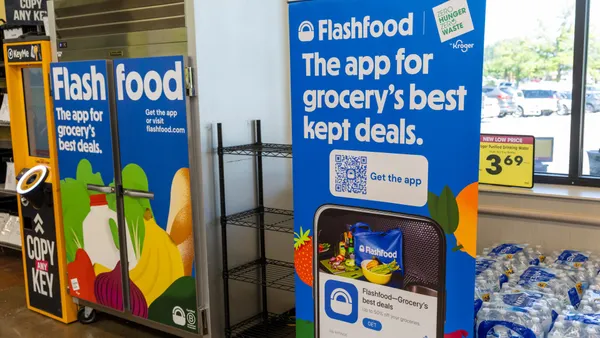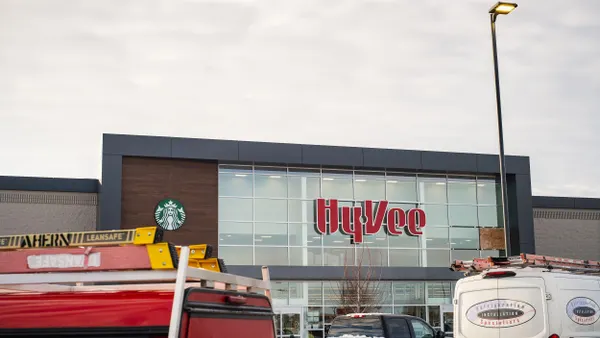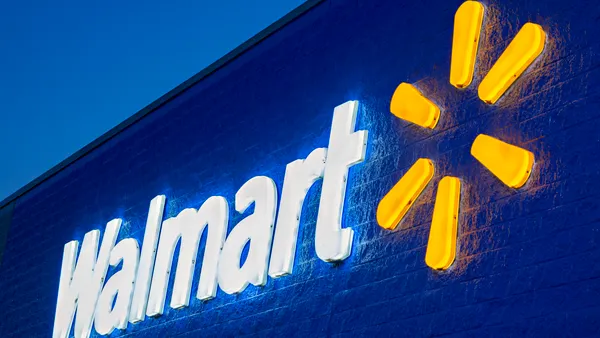Dive Brief:
- Amazon Go stores are a fraction of the size of a Walmart Supercenter or Kroger, but 59% of U.S. shoppers see them as a “threat” to major grocers, according to new survey findings from research platform Piplsay. The nationwide survey, which was conducted between Feb. 19 to Feb. 21, garnered more than 30,000 responses.
- While only 28% of respondents said they had gone to an Amazon Go, most of them said their visit was a positive experience, with 54% saying it was “excellent” and 35% calling it “good.”
- Based on consumer responses, Amazon Go-like cashierless convenience stores are likely to meet strong shopper demand. More than half of those surveyed (57%) said they would like to see an Amazon Go or similar tech-enabled store near them and 54% believe those types of stores will succeed even as grocery e-commerce continues to grow.
Dive Insight:
Even for shoppers who haven’t gone to an Amazon Go store, cashierless grocery shopping demand is high among consumers, according to Piplsay. While the survey results did not delve into which aspects of Amazon Go stores made a positive or negative impression on shoppers, the tech-enabled shopping experience appears to be the main attraction.
At Amazon Go stores, shoppers enter using the Amazon Go app on their iPhone or Android device. Amazon’s Just Walk Out technology uses computer vision, sensor fusion and deep learning to detect items placed or removed from the carts and shelves and tally up the prices as items in shoppers’ carts. By allowing shoppers to skip lines and checkout counters, the stores aim to provide a faster and more convenient experience for consumers looking to grab a few items.
As Amazon scales its brick-and-mortar grocery offerings, which include larger Go Grocery and Fresh locations, retail experts have noted that the different formats can reach various shopping segments. Bill Bishop, chief architect of Brick Meets Click, wrote in a blog post last year that Amazon Go stores, as the smallest of the three offerings, are suited to be placed in strategic locations “to fill small gaps in the rest of the market and to provide greater convenience in more densely populated areas.”
Other retailers, like Westside Market in Manhattan, are ramping up their scan-and-go cashierless-payment systems as more technology companies start to offer the capability. Standard Cognition, an artificial intelligence company behind autonomous checkout systems, turned a convenience store at the University of Houston into a checkout-free store last year. The company unveiled plans last summer to pilot its technology at a Circle K convenience store, with plans to bring it to additional locations. Meanwhile, digital services company UST announced in January that it has created an automated checkout system, following a test with Ahold Delhaize USA.











